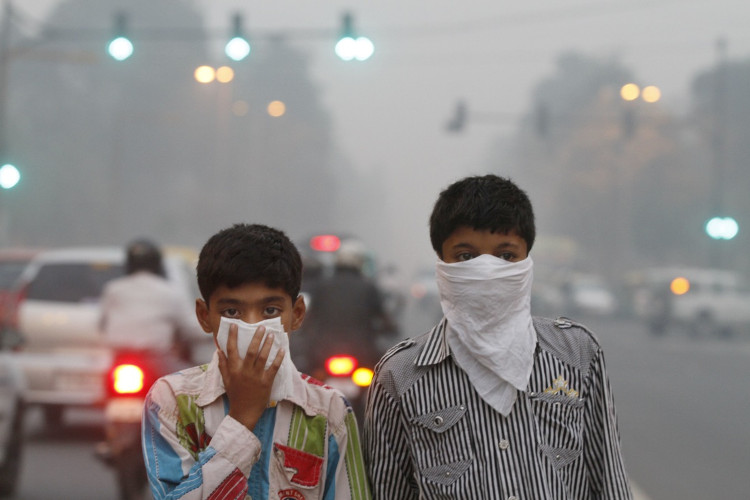More than 80% of urban residents are breathing polluted air
On May 12, the World Health Organization (WHO) released a new report, warning that more than 80% of the urban population across the globe is breathing in poor fresh air and this is increasing the risk. cancer and other life-threatening diseases.
Based on the data collected on 795 cities' outdoor air condition in 67 countries during 2008-2013, the report portrays an overall picture of air quality decline in the cities. The city in the world and also shows that urban residents in poor countries are the ones most affected by the problem.
Notably, 98% of cities in low-income and middle-income countries have air levels that do not meet WHO standards.
Meanwhile, in more prosperous countries, this number is only 56%.
The report also cites data showing an increased risk of serious health-threatening factors, including the risk of stroke and asthma.

New Delhi is considered one of the cities with the most serious air pollution in the world.(Source: Getty Images).
In particular, there are over 3 million premature deaths every year because of the pollutants of outdoor air.
Just as the warning of WHO's head of public health and environmental affairs, Maria Neira, the current status of air pollution continues to "raise a warning bell" a serious threat. health of humanity.
Through monitoring the increase in the concentration of toxic substances in the air such as sulfate and carbon black, WHO also found that air quality is generally improving in more affluent areas, such as in Europe. and North America, while a contradictory reality exists in developing regions, especially in the Middle East and Southeast Asia.
According to the available data, although there is not yet an overall assessment of the most polluted cities in the world, WHO also gives a good example of the polluted capitals with a population density. 14 million people, of which New Delhi of India is the most polluted capital, followed by Cairo (Egypt) and Dhaka (Bangladesh).
WHO's public health and public health coordinator, Carlos Dora pointed out some of the core elements that define air quality in a city and the first is transportation.
Mr. Dora stressed that cities improve air quality mainly through effective implementation of minimizing transport by encouraging people to walk, cycle or use public transport.
Meanwhile, the unreasonable use of energy, the fact that abuse of diesel-powered machinery instead of using other energy sources is cleaner are two other significant factors causing pollution. gas.
One more important cause of air quality, especially in developing countries, is the management of waste and emissions generated from incineration - the leading pollutant.
- Dust covering the Chinese city is harder than steel
- Rural or urban: Where is the freshest and most livable place?
- Practice breathing for full body health
- America: Potomac River water polluted changes the sex of fish
- Simple breathing techniques help you relieve psychological stress right away
- The fire-breathing death pit in Xinjiang China
- Temperatures in cities will increase by 8 degrees Celsius by the end of the century
- Benefits of deep breathing
- Particles polluting the air 'squeeze' into the placenta?
- The solution helps Barcelona become the world's most quality transport city
- Good tips to help you fall asleep right in just 1 minute
- I-House - a green, sustainable urban development initiative
 Is the magnetic North Pole shift dangerous to humanity?
Is the magnetic North Pole shift dangerous to humanity? Washington legalizes the recycling of human bodies into fertilizer
Washington legalizes the recycling of human bodies into fertilizer Lightning stone - the mysterious guest
Lightning stone - the mysterious guest Stunned by the mysterious sunset, strange appearance
Stunned by the mysterious sunset, strange appearance